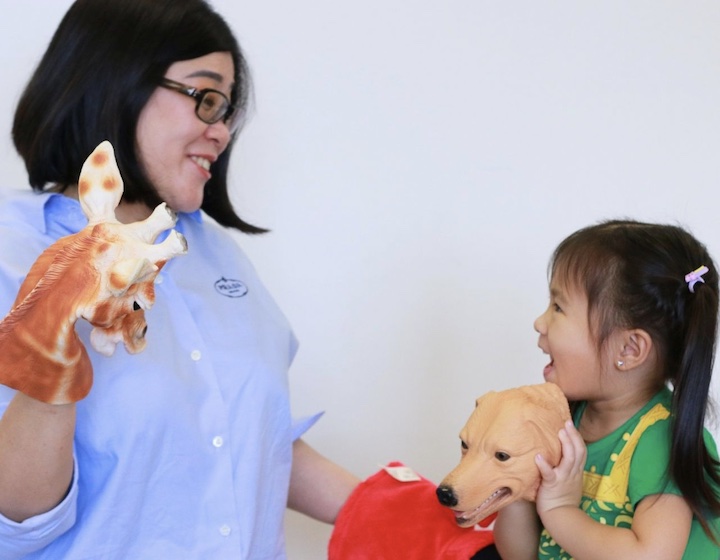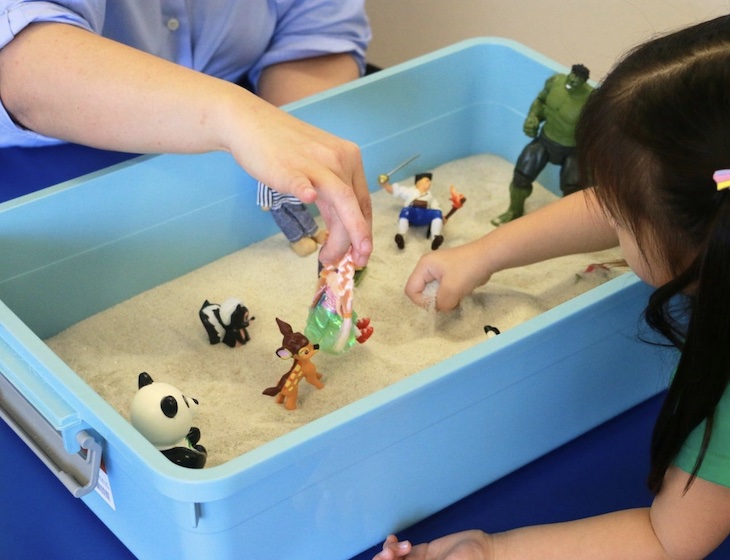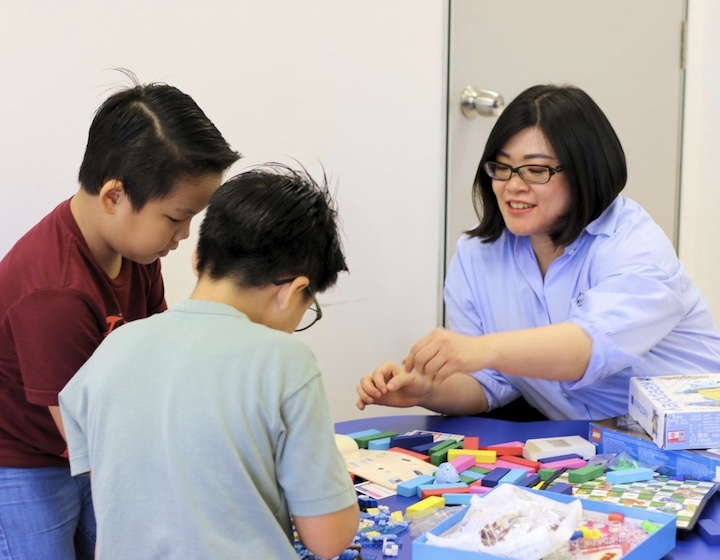
Have you ever looked at your child and wondered what goes on in that little head? Well, with play therapy you can find out! Fecha Yap from Play Therapy Singapore by Therapy Inc. explains what play therapy involves. Try the quiz to see how it could help your child!
Parenting comes with its unique set of challenges, especially when it comes to understanding and addressing your child’s emotional needs. Enter the world of play therapy, a remarkable approach that goes beyond the surface of most traditional therapies. Play therapy isn’t just about games; it’s a clinically proven therapeutic approach tailored for children aged 4-16. Through play, children can express themselves, explore their emotions, and make sense of the world around them. It’s a safe space where toys become tools for communication and healing.
What exactly is Play Therapy?
Children often struggle to articulate their feelings in words, especially when faced with complex emotions. Play therapy offers a unique language—play. Through toys, games, and creative expression, children communicate and process their emotions in a way that feels natural and comfortable. It’s a bridge that connects you to the unspoken world of your child’s thoughts and feelings. In the play therapy room, judgment takes a back seat. It’s a safe and non-threatening environment where your child can freely express themselves.
Whether they’re re-enacting a scene with dolls, creating art, or engaging in imaginative play, every action is a step towards understanding and healing.
Since no two children are the same, play therapy recognizes and celebrates this diversity.
Therapists tailor sessions to suit the unique needs and personality of each child. Whether your little one is shy, outgoing, or somewhere in between, play therapy adapts to their style, ensuring a personalized therapeutic journey.

Addressing a spectrum of challenges
From anxiety and behavioural issues to trauma and developmental concerns, play therapy is a versatile tool that addresses a spectrum of challenges. It is particularly beneficial to children with learning disabilities, autism spectrum disorder (ASD), attention-deficit or attention-deficit hyperactivity disorder (ADHD), anxiety, behavioural issues, depression, as well as anger or rage.
As an example, we have a 7-year-old boy who was diagnosed with ASD and ADHD. He has limited verbal communication, is aggressive due to his anxiety, and often withdraws socially. It was clear that he needed to learn strategies on how to regulate his emotions. In each session, we would establish boundaries that kept us both safe for example, when things didn’t go his way, he would violently throw toys around, instead, we directed him to squeeze a pillow and use gestures or simple words to communicate. We also use creative visualization as a technique to guide his imagination and help him express his emotions and experiences symbolically, fostering self-awareness and coping. Over time, he found different ways to safely express anger, frustration, and sadness. We work alongside a speech and occupational therapist to improve his communication skills. While he is still in therapy, he now has better self-esteem and confidence in expressing himself. His parents are also very happy with the fact that he has translated the skills learned into his everyday life outside of the therapy room.

Supporting your child developmentally
To improve social skills, your child’s therapist may recommend Group play therapy as it fosters social and emotional development in a supportive setting. In a group setting, children with diverse abilities engage in shared play experiences, promoting social interaction, communication skills, and the development of relationships.
Group play therapy also provides a structured environment for practising cooperation, turn-taking, and emotional regulation, essential skills for individuals with special needs. The group dynamic allows for peer modelling and support, enhancing the learning experience and promoting a sense of belonging. Through carefully guided play activities, children with special needs can build self-esteem, improve social skills, and find a sense of community, contributing positively to their overall well-being and development.
Does my child need play therapy?
If your child consistently exhibits challenging behaviours, struggles to express emotions, has difficulties in socialization, regresses developmentally, faces school-related challenges, shows signs of excessive worry or anxiety, displays changes in sleeping or eating patterns, or has difficulty adjusting to change, play therapy may be beneficial.
Play therapy is also an ideal choice for children navigating difficult life events such as anxiety, loss, divorce, abuse, gaming addiction, internet addiction, and bullying.
Take the quiz to find out whether play therapy is a suitable intervention for your child.
Engaging in your child’s play therapy journey isn’t just for them—it’s an opportunity for you to strengthen your bond. Many play therapy approaches involve parent involvement, fostering a deeper connection and equipping you with tools to support your child’s emotional growth at home.
Empower your parenting experience—consider play therapy and open the door to a world where play becomes a profound pathway to understanding your child’s inner world.
![]() Play Therapy Singapore by Therapy Inc., 1 Scotts Road, #15-04, Shaw Centre, Singapore 228208, [email protected], Tel: +65 9100 0752 (Whatsapp), www.playtherapysingapore.com
Play Therapy Singapore by Therapy Inc., 1 Scotts Road, #15-04, Shaw Centre, Singapore 228208, [email protected], Tel: +65 9100 0752 (Whatsapp), www.playtherapysingapore.com






 View All
View All





 View All
View All









 View All
View All






